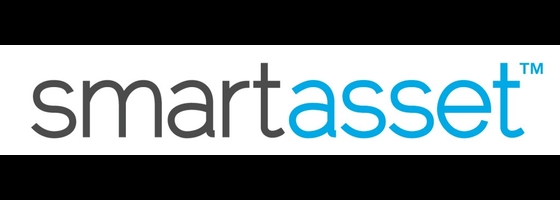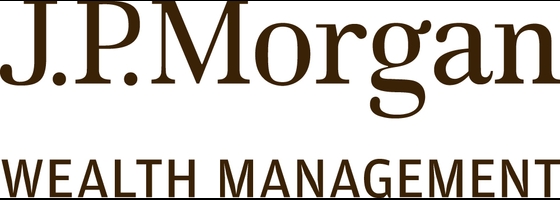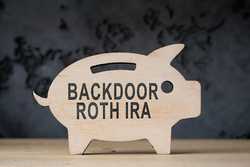What Is Wealth Management and Do You Need It?

Our evaluations and opinions are not influenced by our advertising relationships, but we may earn a commission from our partners’ links. This content is created by TIME Stamped, under TIME’s direction and produced in accordance with TIME’s editorial guidelines and overseen by TIME’s editorial staff. Learn more about it.
Wealth management is a branch of financial advising focused on protecting and growing the wealth of high- and ultra-high-net-worth clients. A wealth manager usually assesses a client's finances, goals, and lifestyle to provide customized advice regarding tax planning, estate planning, charitable giving, and more.
As your wealth grows, your financial situation gets more complicated. Forces such as capital gains taxes, estate taxes, fees, and inflation can chip away at your wealth over time, potentially shrinking the income you have now and the estate you leave your loved ones. Wealth management helps mitigate these issues to protect and grow wealth for you and your heirs.
Wealth managers tailor their advice to each client's financial situation and goals. Still, the general strategies used in wealth management are designed to:
A wealth manager will get to know you and customize their services based on your financial situation and needs. While the services vary by client, wealth managers typically offer:
Wealth managers usually charge a fee based on a percentage of the assets under management (AUM). On average you can expect to pay about 1%, but it can be higher or lower depending on the size of your portfolio. For example, you might pay 1% for $1 million worth of AUM or 0.50% at $10 million AUM. That means the annual fee might be $10,000 at $1 million AUM or $50,000 with $10 million in AUM. Less commonly, wealth managers charge a fixed annual fee or an hourly rate for their services.
An online aggregator is an easy way to search for and compare wealth managers. For example, you can take a short online questionnaire at SmartAsset to get matched with prescreened financial advisors in your area. You can review your matches, set up interviews, and select an advisor matching your needs and preferences. Getting references from friends, family, colleagues, and other business associates is also helpful.
Choosing a wealth manager can be one of your most important financial decisions. After all, your wealth manager will be charged with growing and protecting your wealth (potentially for decades) and ensuring that you leave behind a legacy for your loved ones. As such, it's critical that you spend the time and effort to make a well-informed decision. Here are five tips from SmartAsset to follow when choosing a wealth manager (or wealth management firm) to handle your money.
If wealth management isn't right for you, you have other options for getting financial advice.
Robo-advisors automate investment management using algorithms to build and manage a portfolio based on your risk tolerance and goals. Because robo-advisors use software instead of people to make decisions, they can charge lower fees than other types of financial advising. Using a robo-advisor may or may not give you the option to discuss your situation with a human advisor, as well.
M1 Finance is a low-cost robo-advisor for self-directed investors wanting a single app to manage banking, borrowing, and investing in one place. There are no commissions or account management fees. Dynamic rebalancing automatically puts deposits into underweight segments of your portfolio—and sells overweight portions first.
If you are a high-income earner, you can opt for tools which will ensure the highest returns by maxing out your tax-advantaged accounts. Playbook provides both automated investing and financial advice and will find the earnings and tax opportunities you're missing for all of your bank accounts.
Free trial: 7 days
Essential: $19/month (best for assets under $29K)
Plus: $59/month (best for assets over $29K)
If you're more of a do-it-yourselfer, you can find numerous apps to help you budget, plan your finances, and manage your taxes. Here are three apps to consider:
 |  | |
|---|---|---|
| Cost | $2.99 a month | $14.99 a month or $99 a year |
| Promotion | LIMITED TIME 3-month free trial to existing Mint users | Free 30-day trial and 50% off your first year with the code MINT50 |
| Features | Starts with tracking expenses to build a personalized budget based on your preferences, like zero-based budgeting or 50/30/20 | Budget creation with or without a partner (you can even invite your financial advisor) and also track investments |
| Links to accounts | Yes | Yes |
| View Offer | View Offer |
Monarch. The Monarch personal finance app lets you track all your account balances, transactions, and investments in one place. You can also set up a budget to automatically monitor your spending, so you can stay on track and reach your financial goals faster. Plans start at $8.33 per month. Monarch is currently offering a free 30-day trial and 50% off your first year with the code MINT50.
Simplifi. Simplifi by Quicken is a detailed budgeting app connecting all your accounts to provide a bird's-eye view of your finances. You can develop a spending budget, add multiple savings goals, and track your progress. Plans start at $2.39 per month. You can now benefit from a 3-month free trial for existing Mint users.
Some online trading platforms offer services with lower investment minimums and fees than traditional wealth management firms. Several options to consider include:
Empower. Empower is a digital wealth manager that aligns more with a traditional financial advisor than a robo-advisor. You get access to human advisors who create portfolios that suit your risk tolerance and goals. Empower offers three tiers of service based on your account size, with different management fees and perks at each level.
INVESTMENT AND INSURANCE PRODUCTS ARE: NOT A DEPOSIT • NOT FDIC INSURED • NO BANK GUARANTEE • MAY LOSE VALUE
J.P. Morgan Self-Directed Investing. J.P Morgan Self-Directed Investing is an online trading platform with zero commissions and no account minimums. The app connects to all Chase accounts, which can be a plus if you're already a Chase customer. For an automated experience, consider J.P. Morgan Automated Investing.
TradeStation. TradeStation is widely considered to be one of the best trading platforms available. It's designed for self-directed traders and investors who want advanced charting, technical analysis tools, and trade automation capabilities. TradeStation doesn't offer advice or recommendations, but you'll find ample tools and resources if you have the expertise to manage your own finances.
An index fund is a security that tracks a specific market index, such as the S&P 500. These funds offer a low-cost and easy way to build a diversified portfolio. You can invest in an index fund through an exchange-traded fund (ETF) or index mutual fund, a standard option in employer-sponsored retirement plans. Index funds tend to have low fees and minimum deposits, making them a good bet for most investors.
The decision to use a wealth manager depends on your financial situation, goals, and expertise. You might not need a wealth manager if you have clear goals and are confident you can create and implement strategies to protect and grow your wealth. However, a wealth manager may be a good idea if you have substantial assets, would benefit from an expert, and have questions you need help answering. A wealth manager also makes sense if you don't have the time, interest, or expertise to manage your own wealth.
Asset management focuses on finding the best investments to grow your wealth and deciding how to allocate them in your portfolio. Wealth managers take a broader view of your financial situation to grow and protect your wealth over the long term, using strategies for tax planning, insurance, retirement planning, estate planning, legacy planning, charitable giving, and more.
Wealth managers usually charge a percentage of the assets they manage for you, typically up to about 1% annually. If you have $1 million worth of investments, a 1% fee comes out to $10,000 per year. That may sound like a lot, but a good wealth manager can be well worth the cost, especially if you have substantial assets or a complicated financial situation.
Wealth managers generally work with high- and ultra-high-net-worth individuals and families. They focus on growing and preserving wealth over the long term through complex tax planning, estate planning, and risk management strategies.
Financial planners work with people of all income levels to recommend ways to meet various financial goals, from saving for a short-term goal to building a nest egg. If your finances aren’t too complex, you might get away with meeting a financial planner once a year (think of it as an annual financial checkup). You can also set up a one-time consultation with a planner if you want specific advice, such as where to invest a bonus you received at work.
**INVESTMENT AND INSURANCE PRODUCTS ARE: NOT A DEPOSIT • NOT FDIC INSURED • NO BANK GUARANTEE • MAY LOSE VALUE**
TIME Stamped is paid a flat fee for each successful referral to Herring RIA Sub, LLC ("Playbook") made through our links. TIME Stamped is not a Playbook client. There is no guarantee that clients will have similar experiences or success.
The information presented here is created by TIME Stamped and overseen by TIME editorial staff. To learn more, see our About Us page.









